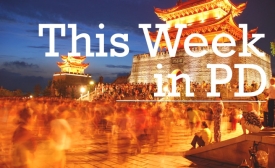china
Both China and the EU have attempted to form strong relationships with African countries over recent years, but how do citizens within these countries view China and the EU as development partners? Floor Keuleers presents survey evidence from a number of different countries in Africa. She notes that while views of the EU are positive in most cases, there is no evidence that the EU is seen as a better development partner than China overall.
The White House is keen to capitalize on Abe`s desire to put Japan back at the center of power in Asia, as China flexes its political and economic muscle. In the Oval Office Obama and Abe will discuss trade and are expected to hail progress toward a Trans-Pacific Partnership that brings together 12 countries -- including Japan and the United States.
After the 7.8-magnitude earthquake that flattened parts of the Nepalese capital of Kathmandu on Saturday and unleashed avalanches on Mount Everest, India and China barely missed a beat. Within hours of the disaster, Prime Minister Narendra Modi dispatched military aircraft carrying workers, medicines and blankets.
American Routes, the public radio program produced at Tulane University, is leading a tour of American “roots” music to China, April 30 to May 3. (...) This concert series builds on our prior China tours with Cajun music, gospel, cowboys and jazz. This kind of vernacular cultural diplomacy is both entertaining and edifying. The virtuosity and diversity we bring to ‘Meet-in-Beijing’ is a great statement between nations at an intimate level.
Remember the pivot to Asia? The big signature move of first-term Obama foreign policy? Some called it a “strategic rebalancing.” We were going to reset our priorities, put the conflicts of the Middle East behind us, and devote big efforts to creating and implementing a strategy to deal with the vital strategic moves America needed to make to account for the rise of the world’s fastest-growing region.

Can China's attempts at asserting its influence globally solidify its world power status?
Chinese President Xi Jinping appealed to wealthy nations to increase support for developing countries during a summit Wednesday, saying China would offer trade benefits to poor nations having diplomatic ties with Beijing.
While commemorating the 1955 Bandung Conference, China and Japan lay out competing visions for Asia and Africa.(...) While Japan and China’s strategies for Asian-African cooperation sound similar, in practice the potential for the two countries to collaborate is slim. China will pursue engagement with both Asia and Africa through the framework of its “One Belt, One Road” strategy, and Japan is hardly going to link its own outreach programs to a Chinese-led initiative.







